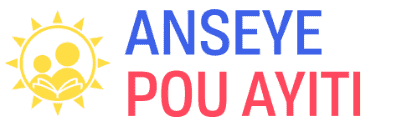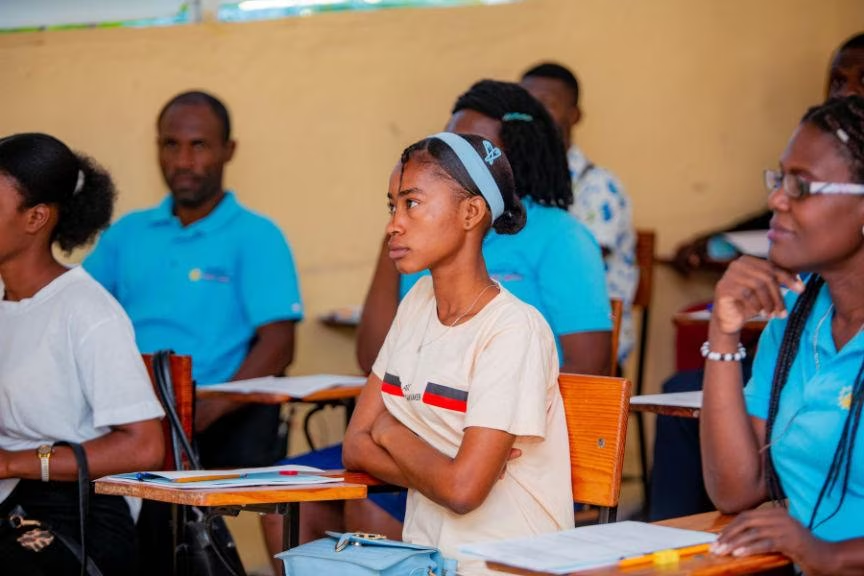On May 19, 2024, Anseye Pou Ayiti (APA) held a transformative konbit session focused on a pressing issue in Haiti’s education system: trauma in the classroom. This event brought together over 100 community members in Gonayiv to address the impact of trauma on children’s learning and development. The session was designed to shed light on how trauma affects students and to equip community leaders and parents with the tools needed to support children through these challenges.
Understanding Trauma in Education
Trauma in the school environment is a pervasive issue that often goes unnoticed. Both children and adults—parents, teachers, principals—are often unaware of the signs and symptoms of trauma and its devastating effects on learning and behavior. Anseye Pou Ayiti, through its Civic Leaders department, recognized the urgent need to address this issue and organized this konbit to raise awareness and promote understanding.
The Reality of Haiti Today
Haiti today faces numerous challenges, including political instability, economic hardships, and social unrest. These conditions often lead to various forms of trauma among children, affecting their ability to learn and grow. Addressing trauma in the classroom is not just about improving academic outcomes; it’s about healing and equipping a generation of young Haitians who will shape the future of their country.
Key Takeaways from the Konbit Session
Trauma can deeply affect a child's ability to learn and thrive in school. This session explored various types of trauma that children might experience, including interpersonal violence, external traumatic events, developmental challenges, and experiences related to being a refugee or immigrant. Understanding these forms of trauma is crucial because they can manifest in the classroom in ways that might not be immediately obvious.
1. Interpersonal Trauma: Violence or abuse from within the family or community can severely impact a child's emotional and psychological well-being.
2. External Trauma: Events such as natural disasters or community violence can create lasting effects on a child’s ability to concentrate and participate in learning.
3. Developmental Trauma:Adverse experiences during crucial developmental stages can affect a child's emotional and cognitive development.
4. Refugee or Immigrant Trauma: Experiences related to displacement, loss, and the struggle to adapt to a new environment can create significant challenges for children.
Key Takeaways from the Konbit Session
The session provided valuable insights into the signs and symptoms of trauma. It emphasized that trauma is not always visible but often manifests in behavioral changes and academic struggles. Participants learned how to recognize these signs and how to offer appropriate support to children in distress.
Strategies for Support: Participants were introduced to various strategies to support traumatized children. These included creating a safe and supportive learning environment, employing trauma-informed teaching practices, and involving parents in the process of recovery and support. The goal was to equip community members to understand and address the root causes of trauma, thus enhancing their ability to support affected children effectively.
Connecting to APA’s Mission and Vision
This konbit session aligns with APA’s mission to transform Haiti’s education system towards liberation by equipping generations of Haitians with the skills, knowledge, and mindsets to achieve their full potential. The session is a testament to our commitment to addressing the underlying issues that impact learning. By addressing trauma, a significant barrier to learning, APA is taking a crucial step towards ensuring that our educational interventions are holistic and responsive to the needs of all children.
Looking Ahead
The insights gained from this session are instrumental as we continue to refine our approach and expand our reach. APA plans to organize additional forums and sessions to delve deeper into these issues.
We are committed to making a difference in the lives of Haitian children by addressing the challenges they face and supporting them in their educational journey. By investing in community leaders and educators, APA aims to build a network of civic leaders who are well-equipped to handle the complexities of the Haitian educational landscape to drive positive change in Haiti's education system.
We invite you to join our movement. Together, we can make a significant impact on the future of Haiti’s children.
About Anseye Pou Ayiti: Anseye Pou Ayiti (APA) is dedicated to transforming Haiti’s education system through innovative approaches and community-driven solutions in order to support the holistic development of every child. Our mission is to equip the next generation of Haitian leaders with the skills and knowledge necessary to drive meaningful change and build a brighter future for all

